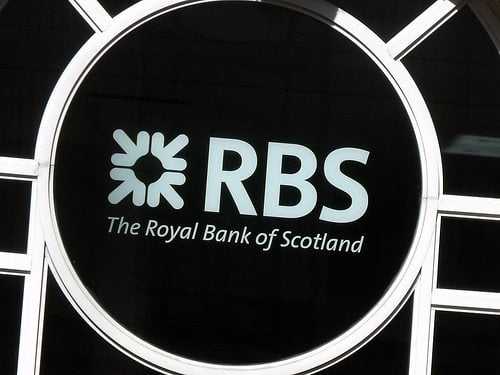

Economy
RBS takes top spot in renewable lending and sets out sustainability plans
The Royal Banks of Scotland (RBS) was the leading lender to renewable energy projects in 2013 and now aims to build on this to improve trust and sustainability within the company. It also says it plans to meet customer demand to build a “stronger, values-based culture” in its 2013 Sustainability Review.
RBS, which remains 81% owned by the tax-payer, reported a pre-tax loss of £8.2 billion for 2013 earlier this year. It said the losses where down to restructuring costs and misconduct fines. Following the announcement shares in the bank plummeted, falling 7.7%.
According to Infrastructure Journal RBS was the top lender to UK renewable energy projects between 2011 and 2013. In 2013, this included small scale renewable funding for the agriculture community through a £50 million fund and the RBS £200 million Carbon Reduction Fund, which provides low-cost finance to sustainable energy projects.
Financing the energy sector account for around 3% of RBS’s total lending. The bank’s long-term strategy for the energy sector involves increasing financial support to developers of low-carbon generation and energy efficiency projects.
The review also acknowledges that in 2013, RBS was the least trusted company in the least trusted sector and sets out how it plans to address this.
Andrew Cave, head of sustainability at RBS, said, “Our 2013 Sustainability Review aims to give an open account of RBS performance in what was another difficult year for RBS and the banking sector.
“Our review outlines how we intend to fix legacy issues and how we are reshaping RBS to become a more sustainable organisation. We recognise that rebuilding trust will depend on us becoming a more responsible and sustainable bank.”
Changes implemented over the course of 2013 include two new environmental, social and ethical risk lending policies. Strengthening these polices means the bank is now more focussed on issues that affect all business sectors, such as climate change and human rights.
The bank states that the review aims to give an “open and honest account of the steps being taken to fix past legacy issues”.
RBS has been implicated in both the Libor and Euribor rate rigging scandals. It has also faced fines in the last year for violating sanctions in the US and inaccurate transactions reporting. The bank has faced criticism for these fines and the behaviour although chief executive Ross McEwan has asserted that the problems arise from decisions made prior to 2008.
Photo: Elliott Brown via Flickr
Further reading:
Royal Bank of Scotland to close 44 branches
RBS reports losses of £8.2bn – and employee bonuses of £576m
Royal Bank of Scotland to focus on UK customers and economy
Royal Bank of Scotland could face new scandal and additional fines


 Environment12 months ago
Environment12 months agoAre Polymer Banknotes: an Eco-Friendly Trend or a Groundswell?

 Features11 months ago
Features11 months agoEco-Friendly Cryptocurrencies: Sustainable Investment Choices

 Features12 months ago
Features12 months agoEco-Friendly Crypto Traders Must Find the Right Exchange

 Energy11 months ago
Energy11 months agoThe Growing Role of Solar Panels in Ireland’s Energy Future



























